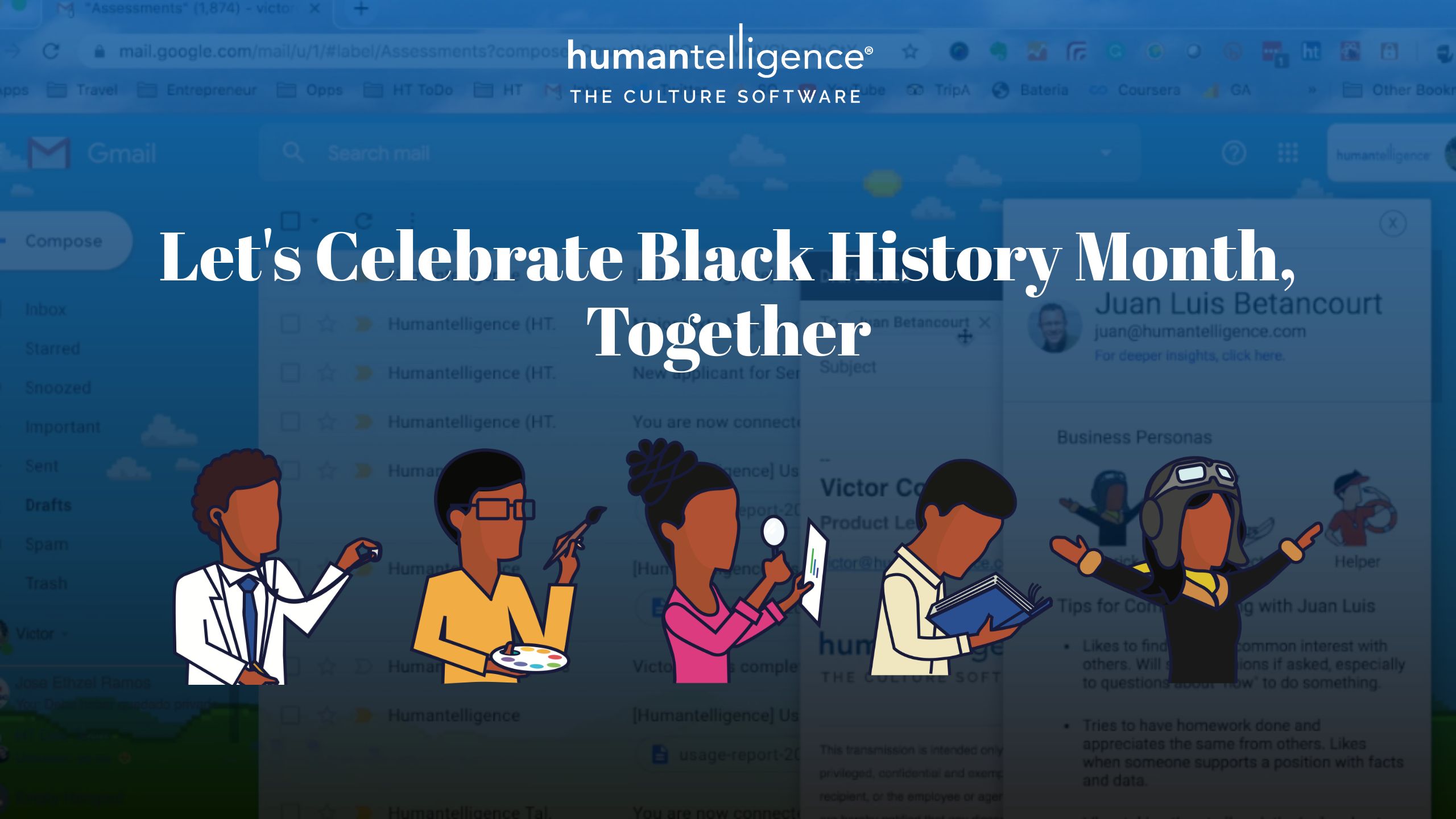Better Understanding of the Past Opens the Door to a Better Future
- February 22, 2021
- Humantelligence

As most know, Black History Month is coming to a close — a month in which we honor the history and achievements of Black Americans. We must take time to reflect on the centuries of struggle for freedom and equality and to celebrate the contributions that African Americans have made to American history — both during this month and always.
Black History Month had its origins in 1915 when historian and author Dr. Carter G. Woodson founded the Association for the Study of Negro Life and History. This organization is now known as the Association for the Study of African American Life and History (ASALH). Through this organization, Dr. Woodson initiated the first Negro History Week in February 1926. Dr. Woodson selected the week in February that included the birthdays of Abraham Lincoln and Frederick Douglass, two key figures in the history of African Americans. In 1975, President Ford issued a Message on the Observance of Black History Week, urging all Americans to “recognize the important contribution made to our nation’s life and culture by black citizens.”
In 1976, this commemoration of black history in the U.S. was expanded by ASALH to Black History Month, also known as African American History Month, and President Ford issued the first Message on the Observance of Black History Month that year. In 1986, Congress passed Public Law 99-244, which designated February 1986 as “National Black (Afro-American) History Month.” This law noted that February 1, 1986 would “mark the beginning of the sixtieth annual public and private salute to Black History.”
At Humantelligence, we often say that culture is a competitive advantage and differentiating factor that contributes to the success of organizations. The same could be said for a nation. Despite the profound change in race relations that has occurred over the last 150+ years, Carter G. Woodson’s vision for black history as a means of transformation and change is still quite relevant, useful, and not fully realized. The chains of slavery are gone—but we are all not yet free—and the work to do so rests on us.
At our organization, we vow to remain committed to creating an inclusive environment, in which we invite and encourage diverse perspectives, ideas, and people. We will remember during this month—and all months—not to forget the struggles of African Americans and to stand up and speak up for the unjust we see around us. We will celebrate the many cultural and societal achievements African Americans in every field, from science and the arts to politics and religion, have achieved—all of which have enriched this nation in ways both deep and subtle.
What remains clear is that we have never fully lived up to the founding principles of this nation–that all people are created equal and have the right to be treated equally–and this month is a reminder that we must continue to actively confront the inequities that afflict our fellow man and celebrate the achievements that have collectively made us who we are.